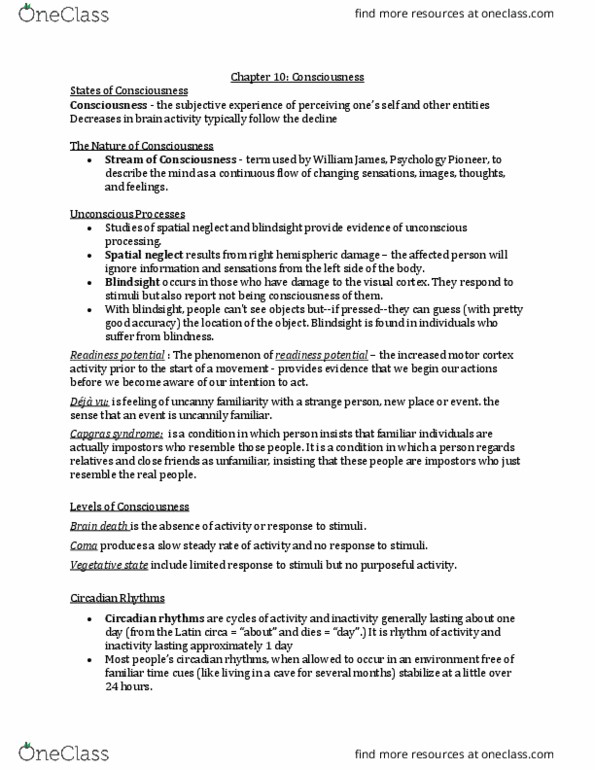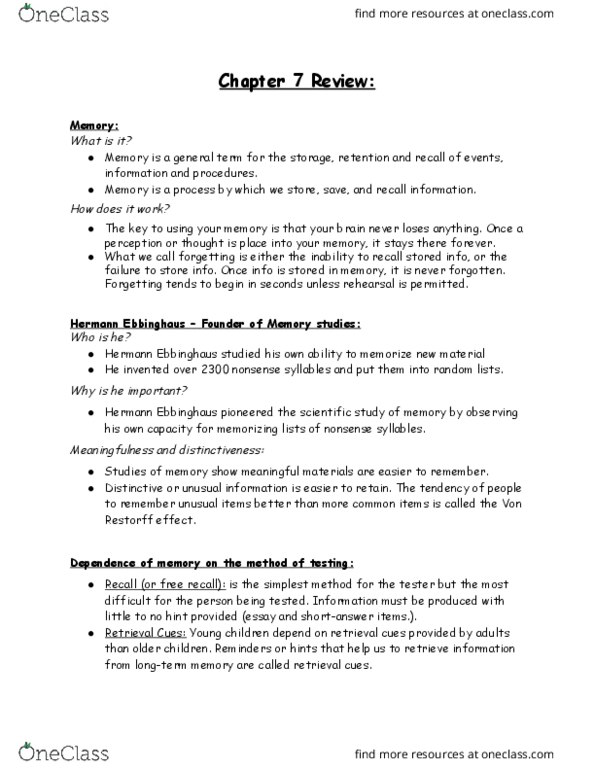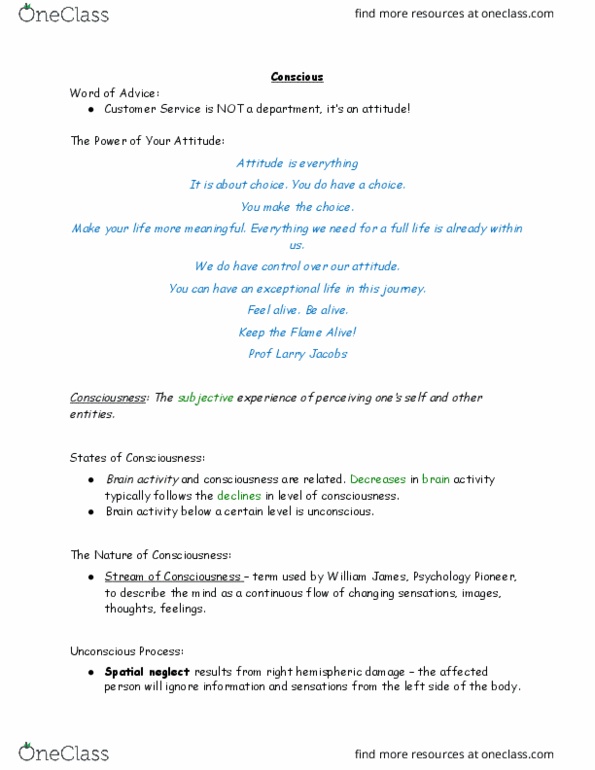01:830:101 Lecture Notes - Lecture 11: Hermann Ebbinghaus, Free Recall, Procedural Memory
01:830:101 verified notes
11/29View all
Document Summary
Memory is a general term for the storage, retention and recall of events, information and procedures. Memory is a process by which we store, save, and recall information. The key to using your memory is that your brain never loses anything. Once a perception or thought is place into your memory, it stays there forever. What we call forgetting is either the inability to recall stored info, or the failure to store info. Once info is stored in memory, it is never forgotten. Forgetting tends to begin in seconds unless rehearsal is permitted. Hermann ebbinghaus studied his own ability to memorize new material. He invented over 2300 nonsense syllables and put them into random lists. Hermann ebbinghaus pioneered the scientific study of memory by observing his own capacity for memorizing lists of nonsense syllables. Studies of memory show meaningful materials are easier to remember. Distinctive or unusual information is easier to retain.




